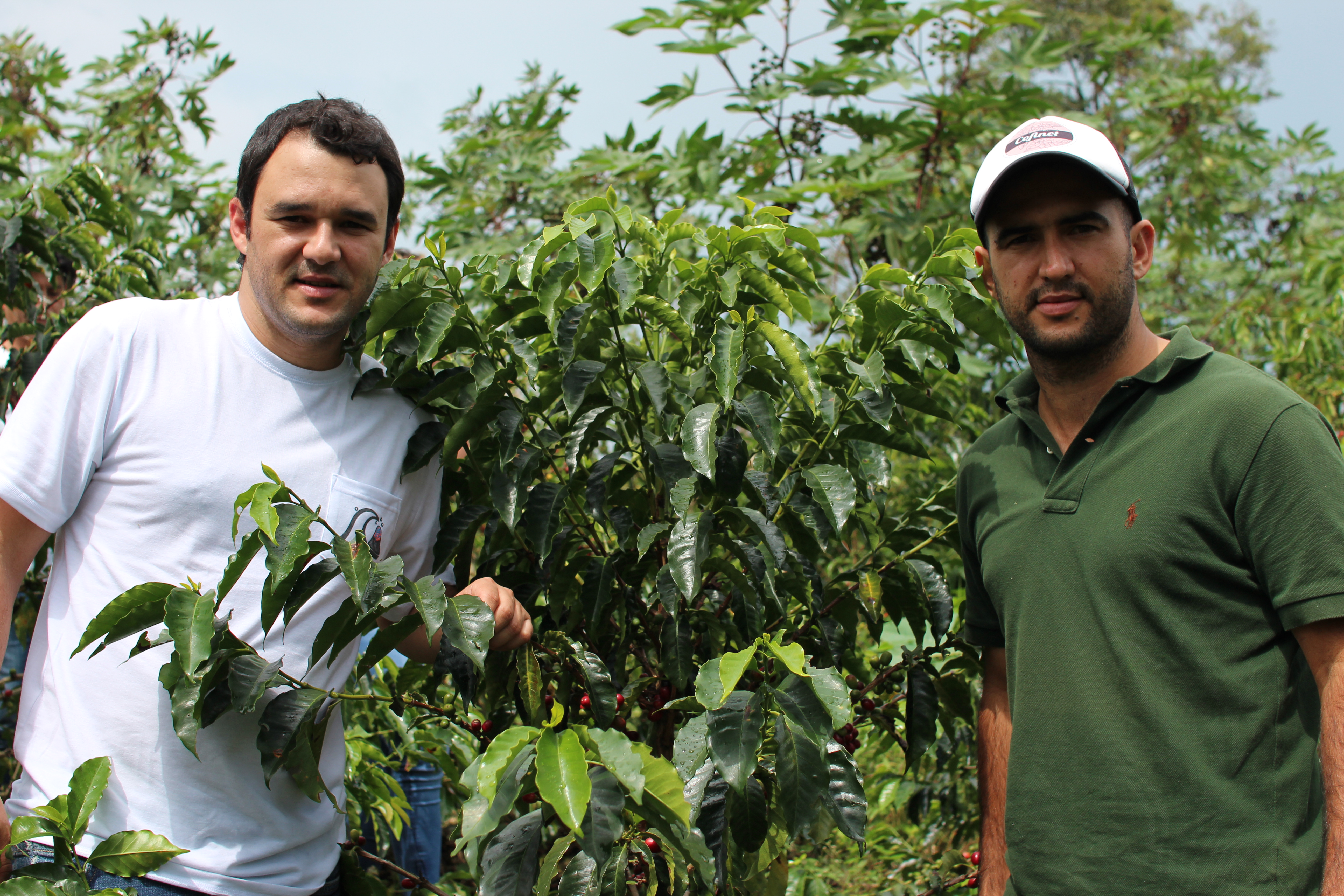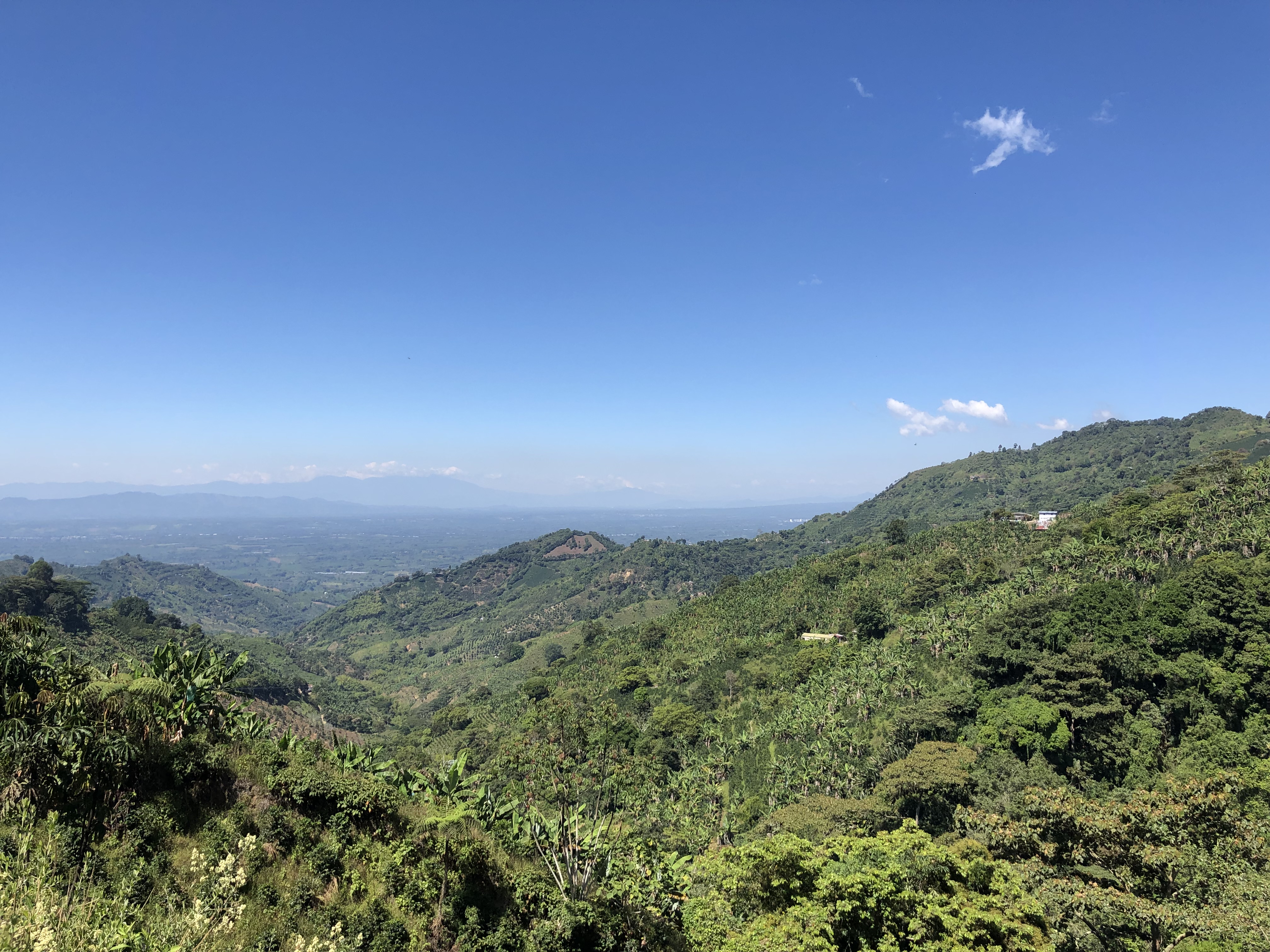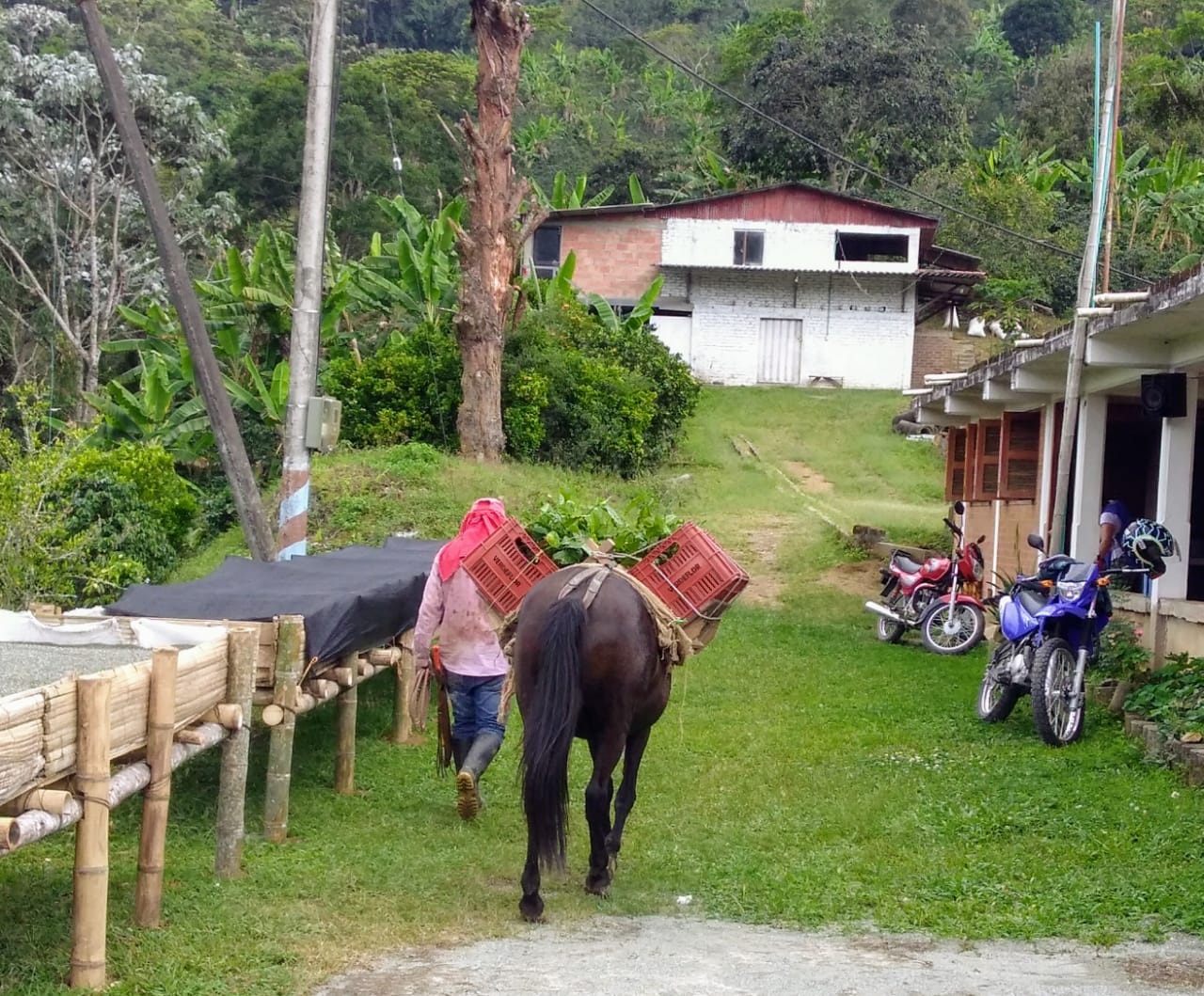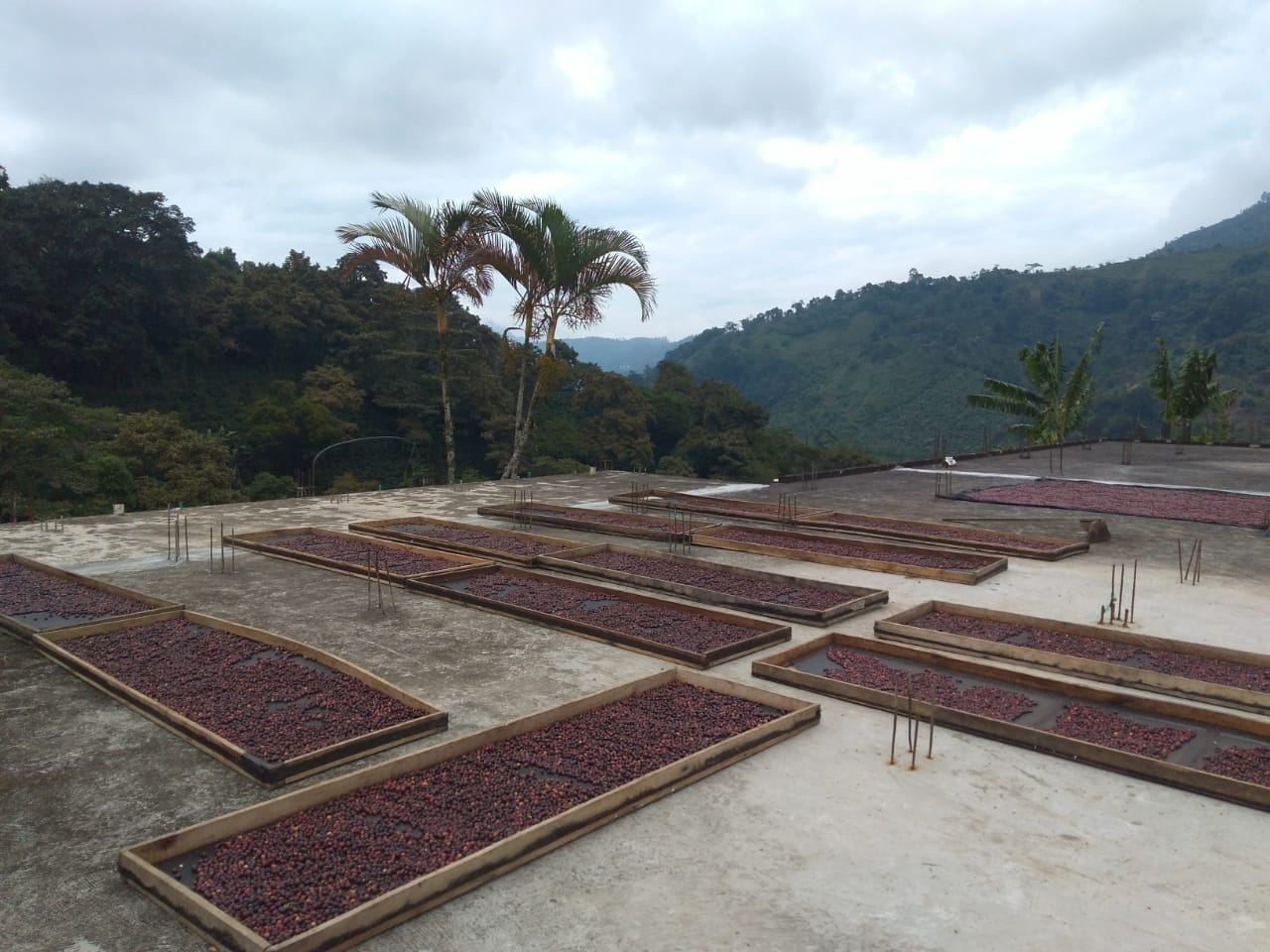This VS coffee has grown in a piece of terrestrial paradise: a farm called Jardines del Eden (Gardens of Eden), right in the central mountain ranges of Colombia.
VERY SPECIAL
This coffee comes from a farm owned and operated by Cofinet, an Australian-Colombian coffee importing company we’ve worked with for years. Growing their own coffee was always part of their plans—or dreams— and this way they get to have a complete experience throughout the whole coffee chain.

While Carlos Arcila (left) is the Australian connection to Cofinet, his brother Felipe works on the ground in Colombia.
It’s is their first farm, but not the last (they already purchased a second one, Jardines del Encanto). They picked Jardines del Eden because of its phenomenal soil conditions, unusual cold microclimate (perfect for growing high-quality coffee) and unique biodiversity (plenty of native birds, one small waterfall and 3 water springs that feed their processing operations).

A view from the top of Jardines del Eden.
JdE serves almost like a lab where they can experiment and produce the coffee perhaps they don’t often access through the general market—and also helps them understand the pains and limitations faced by farmers. Here, they planted 14 of the best coffee tree varietals, from which only 8 are currently producing full yield; they expect the rest to start delivering by the end of 2022.
This coffee is part of a 100% Yellow Gesha microlot produced during their second harvest season ever.
THE YELLOW GESHA VARIETAL
In 1931, the British Ambassador of Ethiopia collected seeds near the village of Gesha to use for research purposes. From there, the coffee seeds journeyed to Kenya, Uganda, Tanzania, and finally to Panama, being recognized for tolerance to coffee leaf rust. However, the plant’s branches were brittle and not favoured by farmers so it was not widely planted.
The coffee came to prominence in 2005 when the Peterson family of Hacienda La Esmeralda (Boquete, Panama), entered it into the “Best of Panama” competition and auction. It received exceptionally high marks and broke the then-record for green coffee auction prices, selling for over $20/pound.
Gesha, also spelled Geisha, is associated with extremely high cup quality when the plants are managed well at high altitude, and is known for its delicate floral, jasmine, and peach-like aromas.
Yellow Gesha trees produce yellow coffee cherries, hence the name.
(Sources: World Coffee Research, Trabocca, SCA)
THE PROCESS
Christian, the farm manager, employs biodynamic principles for the growth and production of the coffee at Jardines del Eden—i.e. avoiding the use of fertilizers.
This particular microlot’s cherries were exposed to dry aerobic fermentation for 24 hours before being placed inside Grainpro bags for 50 hours at a temperature below 22℃. Then, the whole fruits were air-dried on raised beds until achieving an 11% moisture content.

One of Christian’s best workmates!

The dry beds.
BREW, SHARE AND ENJOY
Now you know a bit more about the background it’s time to enjoy this awesome coffee! If you don’t know where to start, you can use the team’s brewing recipe (see below on this page).
You can also try your favourite method (check our brew guides if you need assistance/inspiration) and play around with some settings to get the best of it.
Don’t forget to tell us how it went, perhaps adding your recipe here, via email or on Instagram at @samplecoffee. We look forward to hearing about your experience with this VS coffee!






